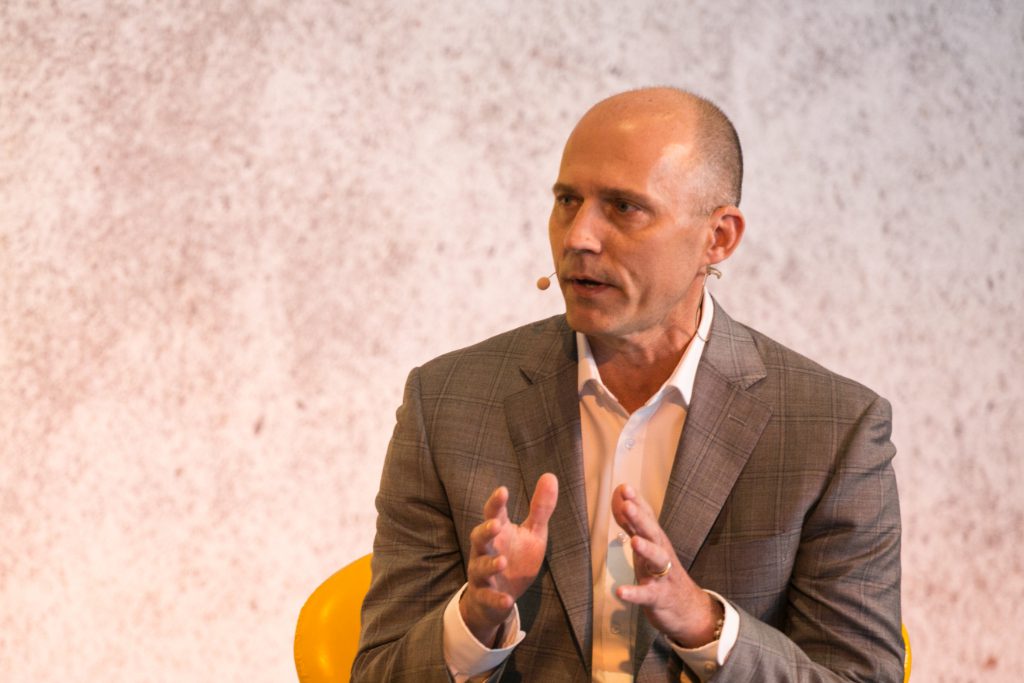Sabre Loses a Chunk of Expedia's North America Business

Skift Take
Expedia Group's months-long drive to simplify its operations has made a victim out of Sabre, which disclosed that it is losing a significant portion of Expedia's business in North America.
Expedia Group has been using all three major global distribution systems — Sabre, Amadeus and Travelport — for many years for access primarily to airline content. It is a way for Expedia to have some redundancy in the event of a failure of one of these systems, and some of these systems have better access to certain airlines around the world than others.
But Sabre CEO Sean Menke disclosed during the company's third quarter earnings call with investors Tuesday that Expedia Group notified Sabre of Expedia's "intent to shift a significant portion of its GDS business in North America away from Sabre."
Menke downplayed the financial impact, stating that the bookings that Sabre started losing in the third quarter are a "low-margin business."
On the other hand, Expedia is one of the largest travel agencies — online or offline — in North America, which is the region where it is strongest.
Sabre revealed that it received this notification before Expedia Group, which is slated to report earnings on Thursday, talked about the change publicly. Expedia Group wouldn't comment, citing its "quiet week" because of its pending earnings announcement.
David Shirk, vice president of Sabre Travel Solutions, tied Expedia's decision to Expedia Group CEO Peter Kern's decision to simplify Expedia's operations. Expedia has eliminated brands, is in the process of selling its corporate travel business, Egencia to American Express Global Business Travel, and has consolidated employee teams to reduce the complexity of its business.
"We have to say that their focus on what appears to be a single-source strategy is pretty unusual," Shirk said, inferring that Expedia will drop another global distribution system, Travelport or Amadeus, as well.
Shirk is correct that most online travel agencies, such as Priceline, use multiple global distribution systems for access to airline content.
Shirk said Expedia's decision had no material financial impact on its operations in the third quarter, when implementation began. He added that Sabre wasn't "financially incentivized" to try to retain Expedia's business in North America.
Losing these seemingly low-margin volumes in North America contributed to Sabre increasing the price of its average booking fee globally to $4.59, an improvement over both the first and second quarters, because of "an improved booking mix," the company said.
Referring to the loss of most of Expedia's business in North America, Menke said: "Although we expect this shift to result in the loss of some volumes, it is important to remember that not all share is created equal in the GDS. As we have discussed, U.S. domestic leisure bookings are at our lowest revenue and margin bookings."
In other news, Sabre officials said they are encouraged by the return of business travel with its top travel management company clients seeing bookings reaching 55 percent of pre-pandemic 2019 levels by the third week in October.
"We remain optimistic about the return of corporate travel with nearly 60 percent of the U.S. population now fully vaccinated," Menke said. "Companies are starting to bring employees back to offices and planning in-person meetings and gatherings. We strongly believe there is pent-up demand for businesses to resume travel to cultivate relationships and compete."
Sabre narrowed its net loss to $241 million in the third quarter compared to red ink of $310 million a year earlier. The company's revenue rose 58 percent to $441 million.





